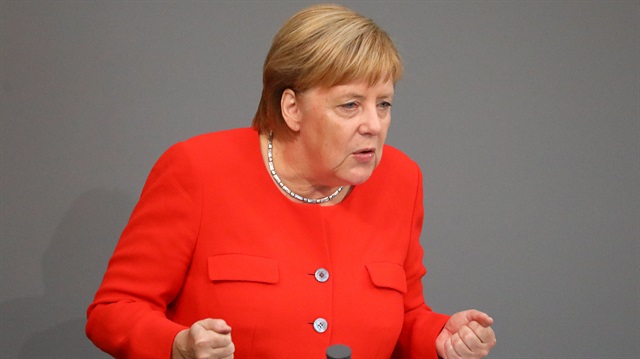
Chancellor Angela Merkel said on Wednesday Germany could not simply look away if chemical attacks took place in Syria, two days after her government said it was in talks with its allies about a possible military deployment in the war-torn country.
The conservative leader said Germany's could not just reject military intervention, a direct rebuke of her Social Democratic coalition partners, who have rejected participation in military action against Syria.
"It cannot be the German position to simply say 'no', no matter what happens in the world," she told the Bundestag lower house of parliament.
Germany, the world's fourth largest economy, is under pressure from the United States to boost military spending and shoulder more responsibility within NATO. It did not participate in military strikes carried out by U.S., French and British forces on Syria in April after a chemical weapons attack.
But Merkel and her conservatives must win over the more pacifist Social Democrats (SPD), junior partners in the ruling coalition, and overcome massive public opposition to Germany's participation in military combat missions.
SPD leader Andrea Nahles on Wednesday told lawmakers her party would not agree to military intervention in Syria unless the United Nations authorised such action.
Combat missions remain a sensitive topic in Germany, given its Nazi past. Participation in any air strikes in Syria would also put Germany on a collision course with Russia, the main backer of President Bashar al-Assad.
Seventy-four percent of Germans oppose participation in a military intervention in the event of another chemical weapons attack by the Syrian government, according to a new poll by Die Welt newspaper that was published Wednesday.
German Chancellor Angela Merkel appealed to European Union members to show solidarity to ensure the Frontex border agency has sufficient powers to be effective and help stop illegal migration, in line with European Commission plans.
"The question of fighting illegal migration means we have to strengthen external border protection ... that means also that the countries with an external border must give up some of their national responsibilities," Merkel told parliament on Wednesday.
"That requires a degree of solidarity, it is about people coming to us or our duty to make legal migration possible to help countries that are in trouble," she added.
Chancellor Merkel also condemned recent far-right violence in eastern Germany and called for stronger efforts to strengthen peaceful coexistence in Germany.
“Jews, Muslims belong to our society, just like Christians and atheists,” Merkel said.
She denounced violence by far-right extremists in several eastern German cities in recent weeks, following reports of murder and other crimes allegedly perpetrated by foreigners.
“There can be no excuse or justification for tracking people down, using violence, chanting Nazi slogans and displaying hostility on people who look different,” she stressed.
Far-right groups organized various rallies in eastern cities of Chemnitz and Koethen in recent weeks, where mobs hunted down foreign-looking people on the streets and attacked restaurants owned by Jews or other migrants.













